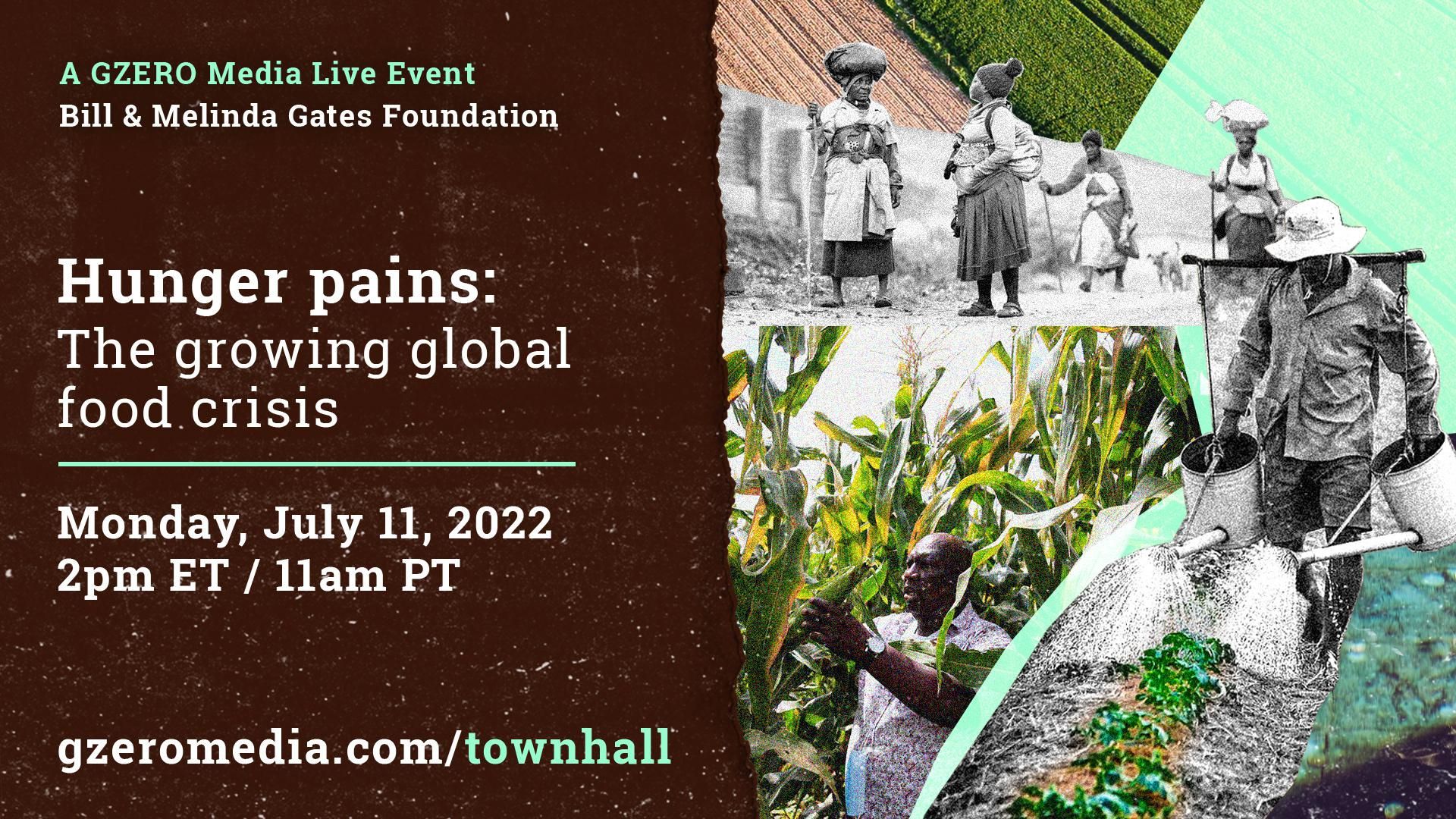The world is on the brink of a crisis that could push more than a billion people towards starvation. Food supply chains, already disrupted by the COVID pandemic, are now further roiled by the ongoing war in Ukraine. Droughts and floods tied to climate change are impacting harvests globally and prices continue to rise, driving those most in need further into poverty.
In partnership with the Bill & Melinda Gates Foundation, GZERO presents “Hunger Pains,” a livestream event focused on this growing problem and practical solutions that are urgently needed.
The hour-long event will feature expert voices including Gates Foundation CEO Mark Suzman, David Laborde of the International Food Policy Research Institute, Thomas Njeru, Co-founder and CEO, Pula Advisors, and GZERO Media’s president and founder of Eurasia Group Ian Bremmer in conversation with moderator Diana Fox Carney, a Eurasia Group senior advisor on climate and sustainability. Please register to attend.
More For You
Xi Jinping has spent three years gutting his own military leadership. Five of the seven members of the Central Military Commission – China's supreme military authority – have been purged since 2023, all of whom were handpicked by Xi himself back in 2022.
Most Popular
Five forces that shaped 2025
What’s Good Wednesdays™, January 28, 2026
Walmart’s commitment to US-made products
In this episode of GZERO Europe, Carl Bildt examines how an eventful week in Davos further strained transatlantic relations and reignited tensions over Greenland.
In this episode of "ask ian," Ian Bremmer breaks down the growing rift between the US and Canada, calling it “permanent damage” to one of the world’s closest alliances.
For China, hitting its annual growth target is as much a political victory as an economic one. It is proof that Beijing can weather slowing global demand, a slumping housing sector, and mounting pressure from Washington.
